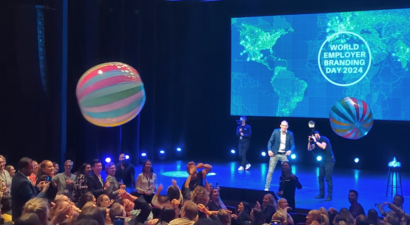Why is it that we feel real affinity to some brands and not others?
Why do some covet Apple technology, others remain staunchly Android? Some seek out Starbucks, others covet Costa?
Essentially it’s because brands are built around collections of rational and emotional triggers that ping our psychology, consciousness and memory in different ways. As individuals, we are pre-programmed to connect and fit with some brands and not others. The same is true of employer brands.
Essentially the process for building a brand and for building a solid people promise is reasonably similar. You need to understand your audience. Figure out their rational and emotional drivers in order to engage, build a relationship and foster loyalty. You need to understand your competition, what they offer and set out your own stall in order to capitalise on key points of difference. And you need to get hold of the very ‘essence’ of what makes your brand unique and special in order to stand a chance of forging powerful connections with the people you touch.
It isn’t simple. Otherwise every business would be doing it, every brand would be super-successful and all organisations would have an outstanding people promise and a queue of interested candidates clamouring to take seats from employees who simply wouldn’t want to leave. But it isn’t rocket science either. A robust process and a commitment to research and insights will certainly set you on the right path whether your focus is in Marketing or HR.
But the challenges of building a brand and building a stand-out people promise are not identical. A one-size-fits-all approach simply doesn’t work.
Here’s the critical difference
Although EVP (or people promise) prompts a buying decision, just like a brand promise, the size of the decision is so much bigger – for buyer and seller - in the world of work.
The decision to take a job with a company has profound implications for the individual in question. It’s no throw-away purchase. It involves a commitment of time and a complicated set of long-term emotional transactions that are profoundly linked to the individual’s sense of self.
There are significant implications for the employer too. When an individual accepts a job, they effectively become part of the product. Which means that the values and cultural fit of the person in question ultimately have a bearing on business and brand performance.
Where consumer branding often hinges of volume of sales, when it comes to employer branding, quality rather than quantity is paramount.
The organisation has to attract the right kind of talent, with the right kind of qualities to make the right kind of contribution. And because organisation culture isn’t static , the ideal employee profile may prove to be an important lever in orchestrating organisational change.
So what can HR practitioners learn from their Marketing counterparts?
Robust research and insight are the keys to unlocking a powerful ‘essence’ that can provide clarity, consistency and cohesion to all communications. HR colleagues should take time to understand the thinking behind the customer-facing brand – after all employees MUST buy-in to the brand values if the business is going to function successfully.
And what can Marketing learn from HR?
A well-constructed EVP can and will provide a solid foundation and platform for a fantastic customer-facing brand. The ‘essence’ of a good experience at work is not the same as the ‘essence’ of product, but if both disciplines respect the other’s remit as well as reinforcing and supporting each other’s goals, any business can secure the people who will underpin their brand. People who are in-tune with customers and culture, understand their purpose and feel inspired and empowered to make a difference in their jobs.


